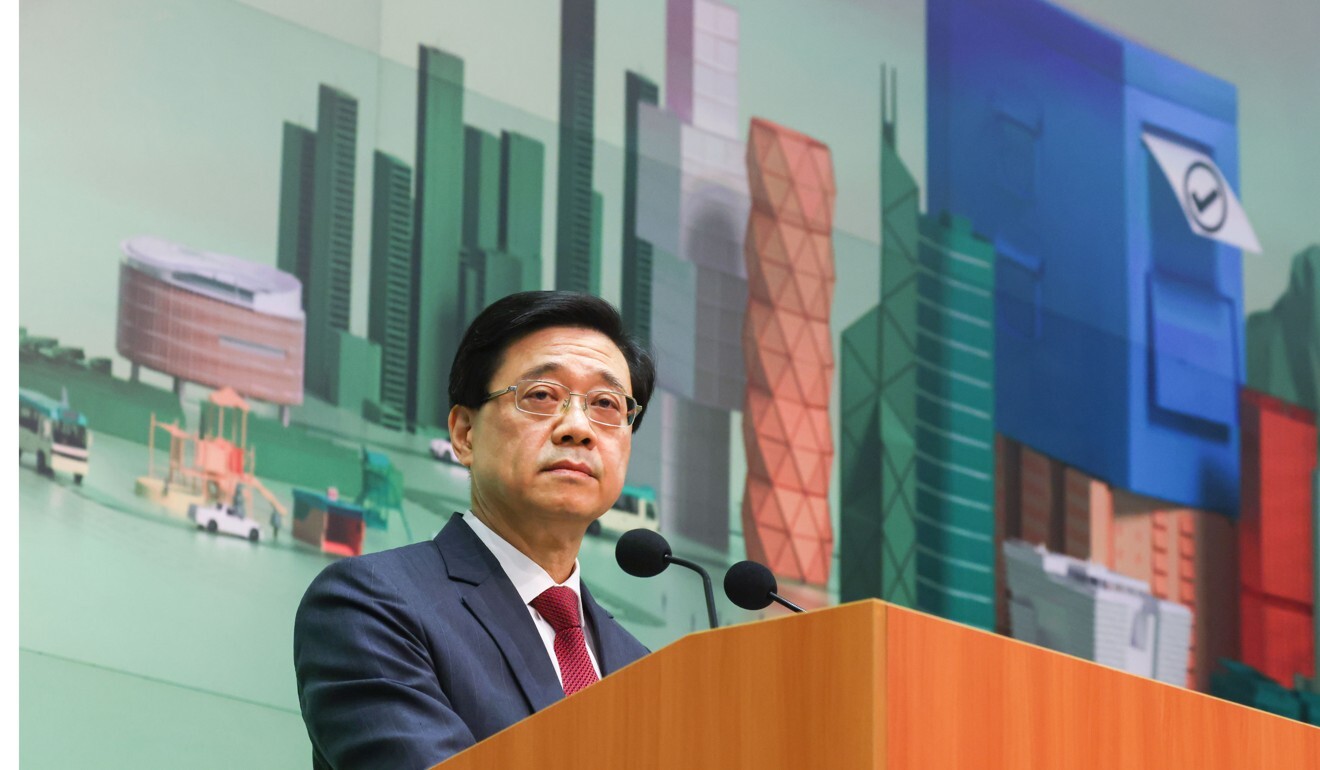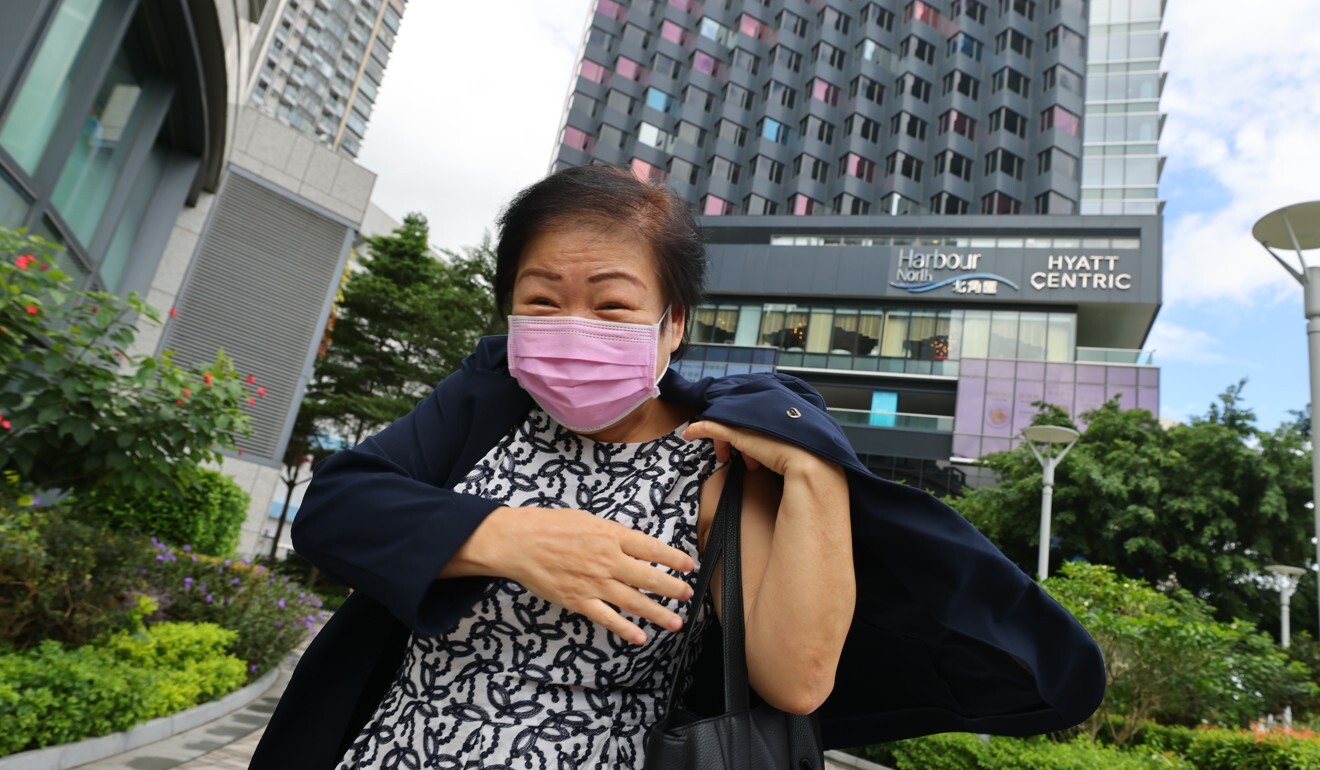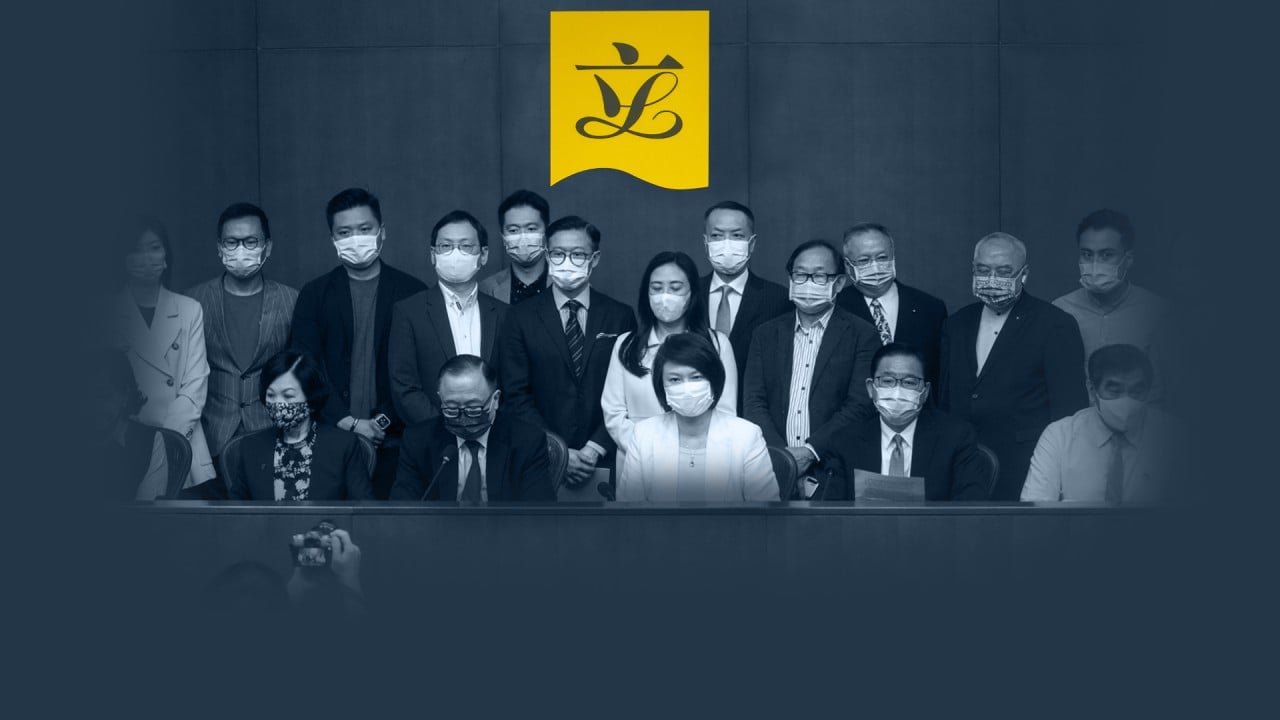
Hong Kong elections: new vetting panel disqualifies 1 from running in Legislative Council race
- Sole disqualification came because hopeful was a part-time government employee, according to Chief Secretary John Lee, who says mix of Legco aspirants shows balanced representation
- City’s No 2 swats down suggestion standards were loosened to draw non-establishment candidates to compensate for opposition camp’s absence
Registered nurse Lau Tsz-chun, vying for a seat in the medical and health services sector, was the only aspirant whose candidacy was invalidated, a decision Chief Secretary John Lee Ka-chiu said was made on the grounds of Lau being a part-time government employee.
The city’s Legislative Council Ordinance states that judicial officers and prescribed public officers are ineligible for nomination.

The results of the vetting process, which cleared the other 153 Legco hopefuls to run in next month’s election, were announced on Friday by Lee, who is chairman of the Candidate Eligibility Review Committee.
He told a press conference that the mix of candidates from different backgrounds and sections of society proved the election had achieved a balanced representation.
But reporters repeatedly asked Lee whether the vetting committee had deliberately loosened its standards to allow for the participation of candidates who did not publicly identify as pro-establishment in a bid to make up for the absence of the opposition camp, which is boycotting the polls over rule changes it believes are designed to stifle dissent.
“No matter what the background of the person involved in a particular case, we apply the same standard and yardstick to assess his or her case. We treat everyone equally,” Lee said.
About a dozen centrist or moderate aspirants have signed up for the December 19 poll.
While the coming election will have a total absence of pan-democrats, members of the pro-establishment camp have reportedly been loosely coordinating among themselves to ensure no seats are walkovers, and every Legco constituency will be contested – a first in the city.
Among the moderate hopefuls approved on Friday was Mandy Tam Heung-man, a former member of opposition parties, including the Civic Party.
Who wants to be a Hong Kong lawmaker? A look at Legco aspirants
Tam, a Wong Tai Sin district councillor, also had her oath of allegiance to the city – a requirement under the Beijing-imposed security law – validated by authorities tasked with assessing her sincerity.
In previous elections, returning officers appointed by the Electoral Affairs Commission have disqualified multiple opposition candidates for their public stances, even when candidates insisted they no longer held the beliefs in question.
Some legal experts slammed those decisions at the time as essentially stripping the would-be candidates of their political rights for life.
In September, Derek Chu Kong-wai and Suzanne Wu Sui-shan were unseated as Yau Tsim Mong district councillors after failing the oath-taking requirement. Both had previously faced questions from government officials over their past use of the “Liberate Hong Kong” slogan.

Lee on Friday refused to be drawn into the specifics of Tam’s case, but said: “What we consider, of course, is when a particular incident happens, as well as the circumstances surrounding it, the law applicable at the time, whether the law has a retroactive effect, and whether the explanation provided by the candidate is reasonable and credible.”
He said the government had examined each candidate individually and that it was hard to make a comparison with past cases, although the principles were the same.
Spotlight on Hong Kong Legislative Council election nominations
Tam welcomed the vetting results, saying they showed that the new electoral system had not been designed to wipe out dissenting voices.
Political scientist Ma Ngok, from the Chinese University of Hong Kong (CUHK), said uniform standards had never been applied to the assessment of candidates or incumbents.
“If you look at the disqualification of district councillors earlier, definitely more have uttered those [political slogans] than the ones who ended up being unseated,” he said.

05:10
Hong Kong's revamped electoral system bolsters pro-Beijing influence in key decision-making bodies
But Ma added that the outcome of the vetting process did not surprise him because candidates such as Tam had already secured most of their required nominations from pro-Beijing figures, indicating that a level of support to run had already been attained.
Before Lau’s disqualification, the medical and health services sector stood as the most hotly contested functional constituency with the line-up of aspirants completed by Chan Wing-kwong, Scarlett Pong Oi-lan, David Lam Tzit-yuen, Ho Sung-hon and Chan Chi-chung. It now shares that title with the education sector, which also has five candidates.
Lee on Friday was also quizzed on the apparent lacklustre response from a public that had so far displayed a lukewarm interest in understanding the revamped system.
“We appreciate that elections are always a subject people will have to take time to familiarise themselves with when there are changes,” he said.
Lee added that he expected awareness to pick up when candidates began campaigning. He did not reveal if the government had set a goal on the turnout rate, only cautioning that it was now a criminal offence to incite others to either not vote or cast spoiled ballots.
The vetting committee was established as part of a drastic overhaul of Hong Kong’s electoral system that was approved in March, aimed at screening out candidates deemed “unpatriotic” or a threat to national security.

The committee was advised by the police force’s National Security Department as well as the Committee for Safeguarding National Security, which Lee sits on. The input was to be kept secret and not subject to judicial review.
Also sitting on the vetting panel are constitutional affairs chief Erick Tsang Kwok-wai, security secretary Chris Tang Ping-keung and home affairs minister Caspar Tsui Ying-wai.
Former justice secretary Elsie Leung Oi-sie, Rita Fan Hsu Lai-tai, once a member of the country’s top legislative body, and ex-CUHK president Lawrence Lau Juen-yee are unofficial members of the committee.
Who will Hong Kong’s first Election Committee lawmakers represent?
Under the sweeping electoral changes, directly elected seats from the city’s geographical constituencies have been cut from 35 to 20, even as the number of Legco seats has expanded from 70 to 90.
The government has also been exploring options that would allow Hong Kong residents living in mainland China to cast votes by setting up polling stations at border checkpoints.
Lee said the government was still working on those arrangements and would make an announcement once there was a final decision.


